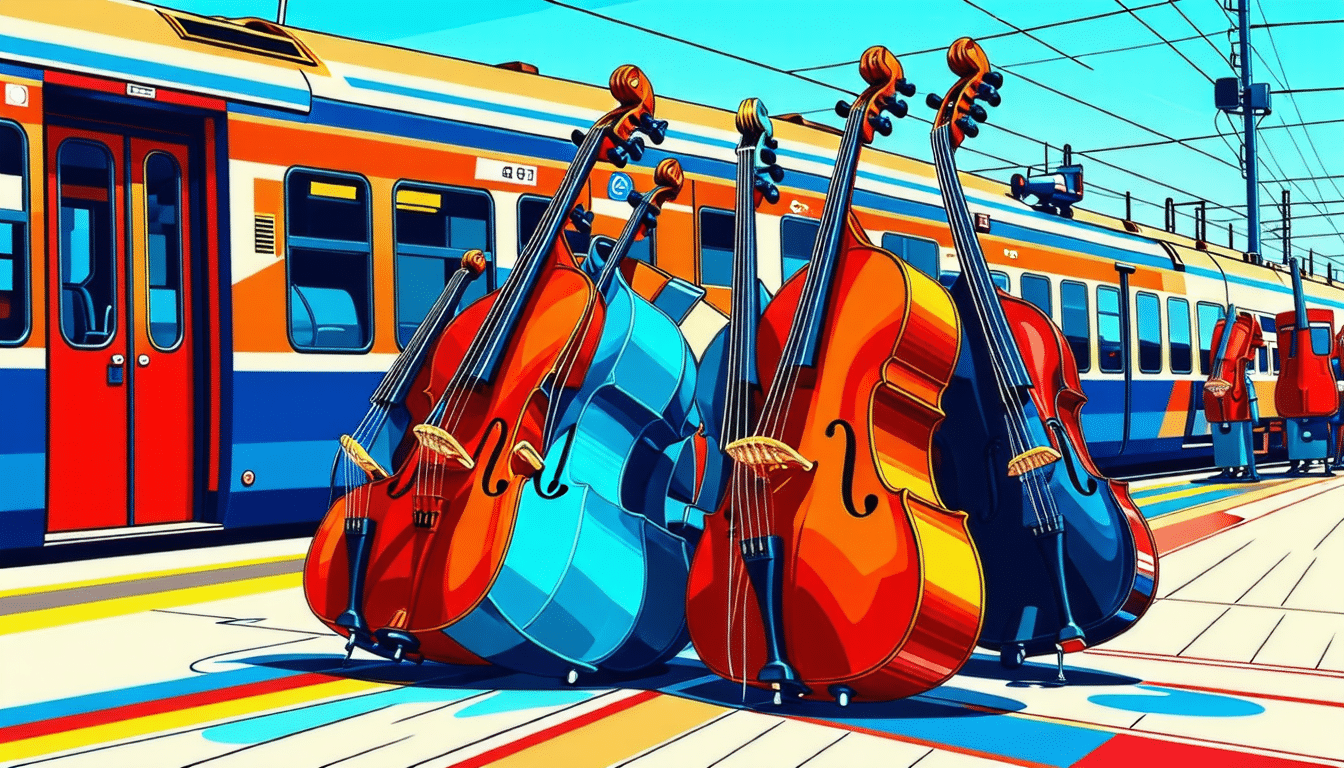Between the rumble of the rails and the sweet sound of bowed strings, the double bass has long been confined to the exclusion of TGV trains. But how could such a ban exist? Come discover the surprising history of the restrictions concerning this imposing instrument and the recent lifting of this ban, symbol of a new harmony between music and rail transport.
A burden for musicians
For several years, musicians have faced a major problem: it was impossible to transport double basses in the TGVs. This ban was not new and caused many inconveniences for traveling artists. But why such a ban?
The XXL dimensions in question
The main concern lay in the extraordinary dimensions of the double basses. Unlike other special baggage like strollers, skis or surfboards, double basses considerably exceed the authorized limits, even for these bulky objects. However, such congestion could represent a potential danger in the event of an emergency evacuation.
Hefty fines for musicians
Before the ban was lifted, musicians carrying rice double basses faced a hefty fine of 50 to 150 euros, an amount that could quickly add up for those who traveled regularly. Faced with this situation, double bass players felt frustrated and misunderstood.
Steps for an acceptable solution
The musicians did not let the situation drag on without doing anything. In 2021, a collective even published an article denouncing the absurdity of this ban. Thanks to a series of discussions between the profession, the Ministry of Culture and the Ministry of Transport, the SNCF finally decided to launch an experimental phase.
Experimentation phase: a promising test
From July 1 to September 8, SNCF authorized double basses on board TGV inOui trains, thus offering temporary relief to musicians. This experiment was welcomed with enthusiasm by the musical community, which now hopes for permanent measurement after evaluation of the results at the start of the 2024 school year.
New rules for transport
To make this initiative viable, specific locations have been designated. In double-level TGVs, the first class (cars 1 and/or 11) will have suitable spaces. For single-level trains, double basses will find their place in second class (cars 7,8, 17 and/or 18).
Tips for a hassle-free trip
The SNCF advises travelers with double basses to favor off-peak periods, such as weekdays excluding Fridays and Sunday afternoons, to maximize their chances of finding a place. In the event of unavailability of the dedicated space, a replacement in the train or a transfer to a following train without any penalty is offered.
The lifting of this ban marks a turning point for musicians, allowing them to travel more peacefully with their instruments and to continue to perform across France.









